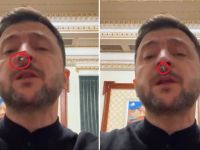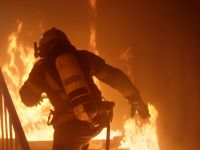The foreign ministers of Iraq and Turkey met on Tuesday in Amman on the sidelines of talks with King Abdullah II, amidst intensifying US threats of military action against Baghdad.
"We both thought it was a good opportunity to come together and we arranged this meeting," Sukru Sina Gurel of Turkey told a press conference in Amman after meeting with his Iraqi counterpart Naji Sabri. However, he declined to discuss the nature of their talks and refused to say if he had sensed any readiness on Iraq's part to accept United Nations weapons inspectors.
"We feel that the responsibility falls on every shoulder in the region to find a moderate and rational solution which is also peaceful to the questions that concern us all," Gurel said.
Sabri told AFP the meeting was to "review the relations between our two friendly and neighborly states", and ways of developing bilateral ties. Sabri arrived at dawn in the Jordanian capital to deliver a message from Iraqi President Saddam Hussein to King Abdullah which he said dealt with "bilateral cooperation and the excellent ties" between Amman and Baghdad.
A statement from the royal palace about Saddam's statement also said it covered "means of developing bilateral cooperation" but it did not mention the US-Iraqi standoff.
Last week, during a visit to Washington, King Abdullah warned that any attack on Iraq would be a "tremendous mistake" and said it would amount to a "miscalculation that would throw the whole region into turmoil". In addition, Gurel said Ankara is opposed to a military strike on Baghdad.
"We will not be supporting any action unless it is legitimized and unless it has international consensus and therefore such a support of Turkey is out of question," Gurel said when asked if Turkey would allow US planes to use the Incirlik base in southern Turkey as a launch pad for attacking Iraq.
Moreover, Gurel cautioned that a military strike on Iraq would have serious consequence for Turkey and the entire region. "We have gone through a very bad experience during 1990 when the Gulf war occurred," he said.
"The Turkish society was harmed economically and the negative effects of the violence in the region continued in the years that followed. The region should avoid the renewal of such an experience," he added.
His views were echoed by Jordanian Prime Minister Ali Abu Ragheb and Foreign Minister Marwan Moasher who met separately with Gurel in the morning. "A military action will have destructive consequences on Iraq, on the humanitarian and economic levels, and it will have negative repercussions on the entire region," Abu Ragheb said.
In the meantime, Sabri told the news agency that his invitation to the United Nations to discuss weapons inspections is in fact a proposal for a full review of issues concerning sanctions-struck Baghdad.
"The proposal is for the UN technical team to come to Baghdad to hold a comprehensive review for the period May 1991 to December 1998," Sabri stressed. "It is necessary if we want to move forward on this inspection issue to clear the issue that are behind us," he said.
Baghdad, he said, has invited technical teams from the United Nations to come to Iraq to "see what has been achieved, agree on what has not been achieved ... and agree on ways and means of solving these unfinished tasks."
UN Secretary General Kofi Annan said Monday after meeting with members of the Security Council that he would soon reply to the Iraqi invitation. A similar invitation by Iraq to the US Congress to send fact-finding teams to Baghdad has been rejected by the White House on Monday. (Albawaba.com)
© 2002 Al Bawaba (www.albawaba.com)







